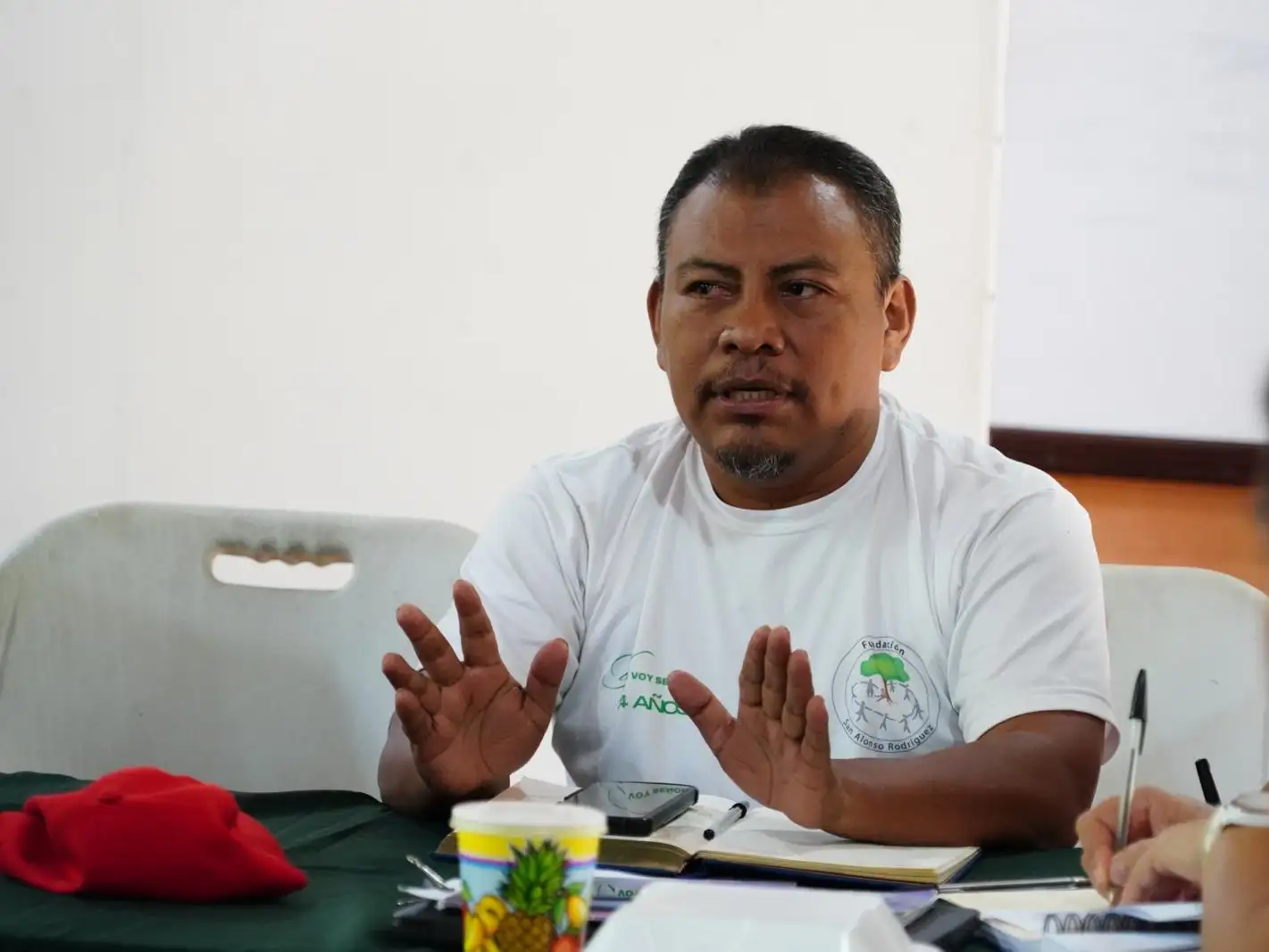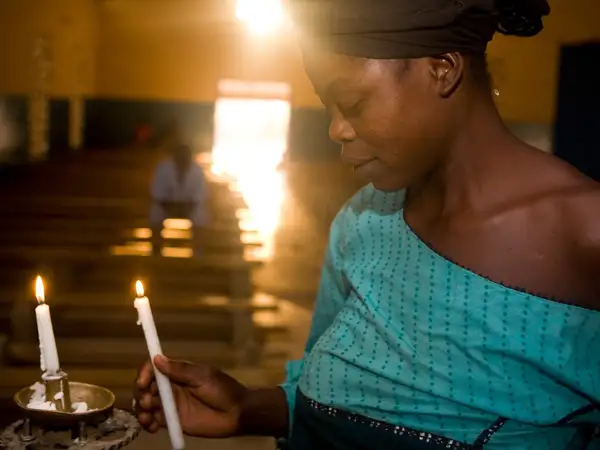

Juan Lopez, an anti-mining activist in Honduras. Photo credit: Radio Progreso
We are deeply saddened by the news that Juan Lopez - anti-mining activist, environmentalist, community leader and municipal councillor of Tocoa, northern Honduras - was shot dead by several men as he travelled home in his car from church on 14 September.
Juan Lopez, 46, campaigned against open-pit iron ore mining in a forest reserve in the vicinity of Tocoa. The mining has a negative impact on the natural water resources of the local area, like Guapinol River.
Catholic Church organisations in Honduras have condemned the murder and are calling for justice and truth.
Juan Lopez was killed despite precautionary measures ordered by the Human Rights Interamerican Court (IACHR) last October. The community believes his death could have been prevented if the Honduran authorities had not failed to implement the measures granted to Juan Lopez, and the other 30 members of the environmental organisation in the city of Tocoa.
The IACHR registered numerous threats against Juan Lopez, including from a gang member, a local businessperson and a mining company representative. In June, two men on motorcycles began appearing around his home.
The death of our friend and brother Juan Lopez shows that environmental activists and human rights defenders are defenceless in Honduras as corruption, impunity and deadly violence shows once again the tentacles of organised crime are entrenched in state structures in Honduras
Human rights and nature at risk
Since 2018 the communities of Guapinol, San Pedro and other areas in the vicinity of Tocoa have been denouncing the illegal granting of mining concessions in the Carlos Escaleras National Park in Honduras.
The mining project received permission to operate inside the 96,000 hectares of the park, which included an open-pit iron oxide mine, an iron oxide processing plant, a thermoelectric plant, and three water concessions on the Guapinol, Quebrada de Ceibita and San Pedro rivers.
About 14,000 people rely on the Guapinol River as a source of water for drinking, bathing, cleaning, irrigation and cooking.
The community reported that the water of Guapinol River was contaminated by the extractive activities of Inversiones Los Pinares, the mining company that had been granted concessions in areas previously protected. Roadwork and exploration activities were done without prior consultation and consent from the communities who lived in the mine's surrounding areas.
The answer from the community was to create the Guapinol Community Environmental Committee.
Thirty-two environmental activists were arrested, and eight of them were imprisoned for 914 days as punishment for protesting against the environmental damage to the rivers Guapinol and San Pedro – a natural source of water for 13 communities. Juan Lopez was among the activists imprisoned.
Only a few months ago, on 21 February 2024, environmental activists achieved the approval of Decree 18-2024. This legislation aimed to protect the core zone of the national park and became a milestone in the defence of common goods against mining and hydroelectric projects in the area. The day after, activists were demanding the immediate application of the decree.
There are no heroes or heroines here. We are a group of humble people who do not want to let criminals defeat us. We are not going to let fear overcome us. Because the objective of the criminals [who committed this crime] is to paralyse us.
A long history of human rights violations
The murder of Juan Lopez was not the first in the campaign against mining near the Guapinol. The national park is named after an environmental activist and human rights defender, Carlos Escaleras Mejia, who was assassinated while defending the area. Only in 2023, three other community leaders were killed in a country that is one of the world’s most dangerous for activists.
CAFOD, alongside our sister organisation Fundación Equipo de Reflexión, Investigación y Comunicación (ERIC), has accompanied the Guapinol community in the defence of their rights and justice, and we will continue supporting their struggle.
Their case is emblematic because the mining project has not just had a negative impact on the national park, it is connected to human rights violations of the surrounding communities.
Join us in prayer for Juan Lopez by repeating the words from Jenry Ruiz, Bishop of Trujillo: “May your blood make the seeds of the Kingdom blossom, and may we have fruits of justice, where a new Honduras is possible.”
We pray for Juan Lopez, his family and friends.
Eternal rest grant unto him, O Lord.
And let perpetual light shine upon him.
May he rest in peace.
Amen.

Pray with us
At CAFOD we hold all our supporters, volunteers, staff and those we have worked alongside overseas who have died in our prayers.
We also pray for their friends and family and for all those who mourn, that they may find comfort in this difficult time.

